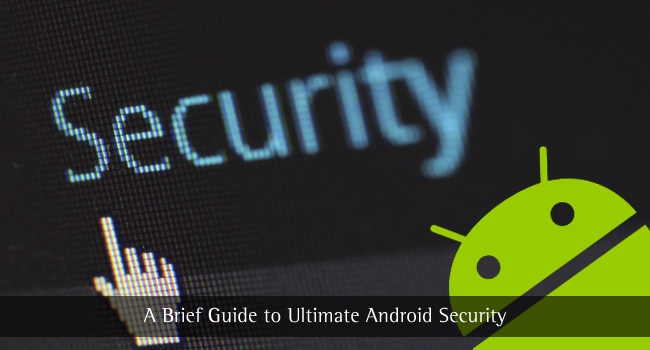Android security, when we say this word, you might have the feeling – Oh my! Do I take the necessary precautions to make my device secure? We will answer this question.
A smartphone is the most personal device you have and you cannot get by a day without it! This is the truth of the world we live in. Since you always carry it with you, it can certainly offer a lot of information about your habits.
Your location history, web browsing, Google searches, app usage, and even recordings of your voice talking to the Google Assistant – all of these are monitored by Google round the clock!
Yes, your phone and the Google services and apps are amazingly helpful. But you must take note once in a while of just how much information you are handing over to Google.
So, what can you do to protect your privacy? A couple of things actually.
Here are some simple ways to keep your Android device safe from attackers. These Android security tips will help you can stay in control of all your critical information and ensure that you do not have to compromise on your privacy.
A Brief Guide to Ultimate Android Security?
Table of Contents
- 1. Always Lock your Phones
- 2. Use Two-factor Authentication
- 3. Purchase Smartphones from Vendors who Release Android Patches Quickly
- 4. Download Apps only from the Google Play Store
- 5. Use Device Encryption
- 6. Use a Virtual Private Network
- 7. Manage your Passwords
- 8. Use Anti-Virus Software
- 9. Turn Off Connections when you do not Require them
- 10. Uninstall all the Apps that you do not use
#1. Always Lock your Phone
It is so simple, right? But, people still at times do not do it. This habit may lead to a worse case scenario if your phone gets stolen. Just imagine sensitive information like your credit card or account details in the hands of a stranger!
What is the best way to lock your phone? Using a PIN remains the safest way.
#2. Use Two-factor Authentication
It is a good idea to lock down your Google services as well while securing your phone. This can be done with Google’s two-factor authentication.
Log in to your Google account and access the two-step verification settings page. Then select “Using 2-step verification” from the menu. From there, follow the prompts. You will be asked for your phone number. You can receive verification codes by voice or SMS on your phone.
Within seconds, you will get a call with your verification code. You then enter this number into your web browser’s data entry box. Your device will then ask you if you want it to remember the computer you are using. If you answer “yes” the programs will be authorized for use for 30-days. Finally, you turn on 2-step verification.
#3. Purchase Smartphones from Vendors who Release Android Patches Quickly
From the viewpoint of security, it is certainly helpful if you buy smartphones from vendors who release Android patches quickly. This means your cell will get the latest security patches as they are released.
#4. Download Apps only from the Google Play Store
The majority of Android malware comes from untrustworthy third-party application sources. Google has continuously worked on making the Play Store safer than ever.
For example, Google Play Protect can automatically scan your Android device for malware when you install programs. You must ensure it is on by going to Settings > Security > Play Protect. For maximum security, click Full scanning and “Scan device for security threats” on.
#5. Use Device Encryption
When you encrypt a device, you are wrapping the information on it in a layer of protective code that prevents unauthorized people from accessing it. For instance, to make sure your information is secured, your organization requires you to encrypt your Android device before you can access company files, email, or data.
To encrypt your device, ensure that a screen lock PIN or password has been set for your device and then go to Settings > Security > Encrypt Device and follow the prompts.
#6. Use a Virtual Private Network
If you are traveling or in any public place – you will obviously want to use free Wi-Fi. Everyone does. But for safety, you must use a mobile Virtual Private Network (VPN).
Some of the best ones are NordVPN, ExpressVPN, and TorGuard. No matter how tempting it is, you must not use a free VPN service.
#7. Manage your Passwords
Keep all your passwords safe by using a password management program. Now Google comes with one built-in, but if you do not want to place all your security eggs in one cloud basket, you can use other mobile password management programs. The best of the lot are LastPass, 1Password, and Dashlane.
#8. Use Anti-Virus Software
When it comes to malware protection, using anti-virus for android security is a must. The best free anti-virus for Android these days is Avast Mobile Security and Antivirus. It is good at finding and deleting malware. The best freemium anti-virus software is Norton Mobile Security. All its components work well and if you choose to go for the full package, it’s only $25 for 10 devices.
#9. Turn Off Connections when you do not Require them
You should always turn off Wi-Fi or Bluetooth when you are not using them. Not only will this prevent your battery from draining, but also save your phone from being attacked by any miscreants.
#10. Uninstall all the Apps that you do not use
Apps make our life easier But, every application comes with its own security problems. So, if you are not using an application, uninstall it right away. The fewer apps you have on your smartphone, the fewer chances an attacker has to invade it.
Conclusion: Android Security Guide
We make privacy tradeoffs almost daily in exchange for the application services. In many cases, it is worth it. Yet as technology sneaks ever more into our lives, we must from time to time to decide just how much is enough.
We hope you found these tips useful and that you apply these to make your phone safer. Do throw in your recommendations in the comments below.




George
Do keep in mind that Play Store also has a few malicious apps which managed to get around Google’s security.
Robert
Android security is the main fact in this generation. Many android user face hacking problem. Your post helps too much to recover this problem. And they are taking proper steps and arrange a better security.
Rakesh
All tips are incredibly valuable. I often download apps from Android Playstoretore but sometimes I download APK from official websites which are not available on play store like Showbox and Tubemate. Here, we need to watch out for fake apps else the Android device will get corrupt.